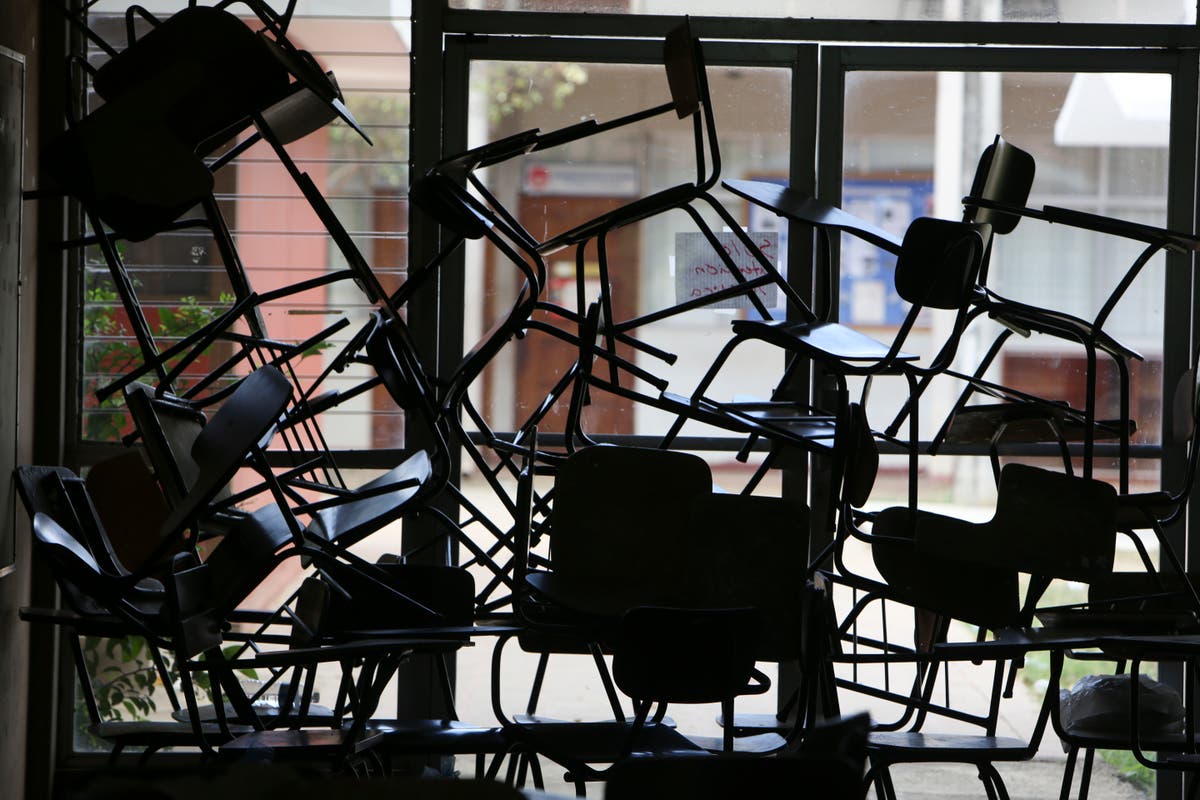
Four years after university students led protests against Nicaraguan President Daniel Ortega, his government is minimizing chances of a reoccurrence by seizing a dozen private universities and closing them or shifting control to the state.
A generation of students who participated in the April 2018 protests saw their education interrupted. Many were forced into hiding, jailed or exiled when Ortega’s police cracked down. Now others who managed to resume their studies worry they won’t be able to finish or have finished but can’t find work because the now state-run schools haven’t given them diplomas.
The seizure of the private universities in recent months and the passage of education reforms that increase state control are the latest examples of Ortega’s relentless pursuit of those he believes conspired to try to overthrow his government.
“In April 2018, the regime took the repression to limits never seen in recent years,” said Ernesto Medina, who led American University in Managua for 11 years until the end of 2018 and who is in exile in Germany. “That’s when we realized that Ortega would not stop until he punished the universities and the students.”
A request for comment to first lady and Vice President Rosario Murillo, who is also the government’s spokeswoman, was not answered.
Earlier this year, dozens of leading opposition figures were tried, convicted and sentenced for allegedly trying to destabilize Ortega’s government. Nongovernmental organizations that worked on a range of issues were closed — including 25 more on Wednesday — along with independent media outlets.
The Sandinista-controlled congress in late March passed reforms to two education laws that reduce university autonomy and increase government control, experts say. The changes also cut government funding to the Jesuit-led Central American University in Managua, another center of protest in April 2018. Those government funds had been used to offer scholarships to low-income students.
Ortega has sought “revenge” against the schools, Medina said. “Ortega’s objective is to consolidate the government’s and the Sandinista Front’s political control over universities.”
Ortega recognizes how university campuses can generate social upheaval. Many of the Sandinista guerrillas who fought beside him to overthrow dictator Anastasio Somoza in 1979 came from the universities as leaders of similar movements in Latin America and around the world have.
Nicaraguan universities lost their autonomy temporarily after the revolution as well when the junta that governed the transition chose university administrators.
“We were responsible for that abuse and now we are paying for it,” said Medina, who at that time supported the Sandinistas.
Of the 12 universities seized, seven are based in Nicaragua and five were the virtual campuses of foreign universities. In each case, congress alleged administrative failures and financial incompliance as justification for the seizures.
The universities’ property was transferred to the state and three new large universities with a combined enrollment of 18,000 were created using that infrastructure.
For weeks in 2018, students occupied Nicaragua Polytechnic University in Managua, fearful they would be killed if they left. There were frequent skirmishes with police and Sandinista youth. They treated their wounded while trying to coordinate with students at other universities.
Now the school, known as UPOLI with an enrollment of 8,000, has been renamed National Polytechnic University or UNP. The new university’s Facebook page is full of comments from students or recent graduates worried about getting the paperwork they need to find jobs in their fields.
One, a recent nursing graduate who asked not to be identified because she feared retaliation, said despite graduating in November, she was still waiting on documents necessary to find a job.
The woman had gone to public hospitals, the medical workers union and private clinics and in each instance was told she could not be employed until she had her degree and a code given to graduates.
Her pursuit of answers from university administrators has been a frustrating series of deflections and delays.
“A week passed, then two weeks. We went to the nursing school, we don’t have an answer,” she said. “They just told us that they were going to change the leadership.”
To get by, when COVID-19 cases were surging, she cared for those infected in their homes. Now she cares for an elderly patient.
Another seized university was Paulo Freire University founded in 2007 by the lawyer Adrián Meza, a well-known Sandinista militant during the revolution, who later distanced himself from Ortega.
Meza moved to Costa Rica shortly after the government seized his university’s two buildings and all of the equipment at five sites around the country in February. He said there was an order for his arrest. The government had been hostile toward the university because of its defense of human rights, especially after Meza denounced the arrest of one its students late last year, he said.
What will happen to the university’s 1,500 students is unclear, despite the government’s promises of continuity, Meza said. The school’s political science department had not been approved to resume classes since the takeover.
The seizures have set the country’s education system back decades, he said.
“In fact we’re already in the Middle Ages where any expression of inconformity leads to jail,” he said.







